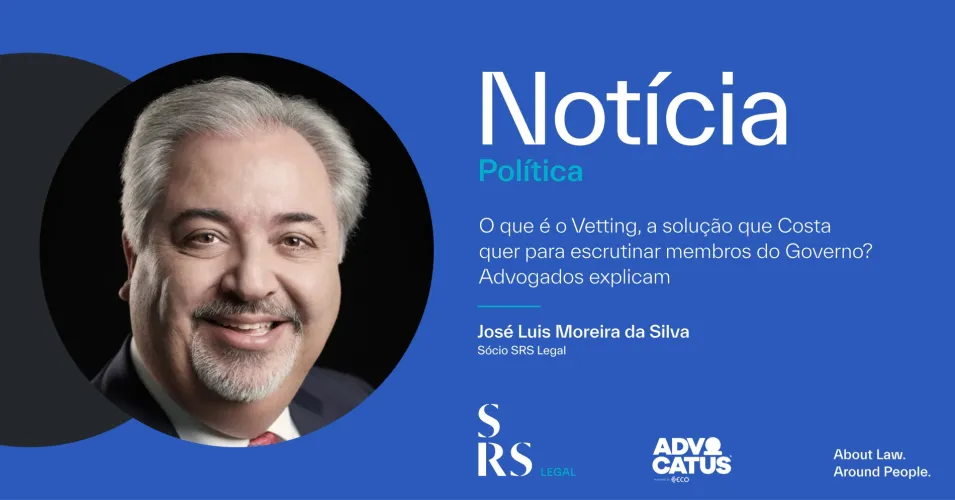Communication
What is Vetting, the solution that Costa wants for scrutinising members of the Government? Lawyers explain (with José Luís Moreira da Silva)
«José Luís Moreira da Silva, Partner at SRS Legal, has a different opinion. "In a semi-presidential regime such as ours, with a parliamentary leaning, I see no reason to introduce this prior parliamentary scrutiny, since the Constitution provides for forms of permanent supervision of the members of the Government by Parliament. The PM's intention would even have the caricature of transforming the Portuguese regime into a presidential regime, by attributing to the Speaker the power to confirm the members of the Government, which would no longer be a power of the PM?
But, if introduced, "without a constitutional revision (which is underway), it could be in the regulations of the Parliament or in an organic decree of the Government, or even in an autonomous law (which would always be materially constitutional). But, as proposed by the PM, it would always be a material change to the constitutional regime in force, so it cannot be taken lightly. The PR has already demonstrated its objection to the proposal, for this very reason".
Moreover, this mechanism should always be done "before the proposal to the PR, so that the PR cannot be held responsible for something that does not depend on him, but on the PM", he explained, concluding that this "does not seem to us to be the best solution in our system, since the Parliament exercises subsequent supervision and not prior". If it were introduced, Parliament would have many more powers and would turn the Government into a Commission of its own, as in parliamentarian regimes. Today the Parliament is heard in the appointment of high public positions, especially those provided for in the Constitution in cases where it is desired to give greater independence to the position, making more than one body intervene and especially the Parliament with a plural composition. And this solution has obvious constitutional problems, as it changes the current regime, messing with the powers of the President of the Republic, the Government and the Parliament.»





